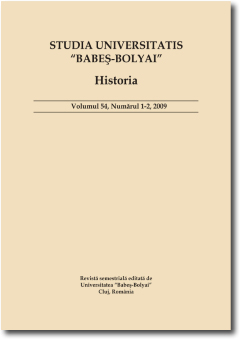DEFINING THE NATION: HISTORY, IDENTITY, AND COMMUNISM IN ROMANIA (1964-1966)
DEFINING THE NATION: HISTORY, IDENTITY, AND COMMUNISM IN ROMANIA (1964-1966)
Author(s): Bogdan C. IacobSubject(s): History
Published by: Studia Universitatis Babes-Bolyai
Keywords: 1960’s; emancipation from Moscow; national-Stalinist synthesis; Stalinist palingenesis; historical front; fighting community.
Summary/Abstract: This article analyses the development of the policy of sovereignty of the Communist Party and the position of the Romanian state in the former Soviet bloc and also the national identity and traditions in political and historical discourses. On this respect, during mid60’s was consolidated Nation as a symbol of regime identity. In this way, political discourse joined epistemic practices. Topoi of emancipation, originality, pride and sovereignty generated a particular affirmation of Romanian communism, fact that involved integration of ideology, science and culture into national Stalinism. The Party became the historical agent that had to put to light national sovereignty, Romanians fought for during their existence. The process of emancipation from Moscow, which began in 1958, determined a renewal of the Party and its historical mission: the ethos of the communist revolution has turned into a national destiny. In the same time, in the second part of the decade, the Stalinist community became Nation as a vivid historical organism. Having the example of historical front, this article debate on the process of interpenetration of Stalinist palingenesis and the conservative one, the last one supported by some Romanian interwar intellectuals. Scientism and the myth of progress are connected to the paradigm of organic palingenesis, fact that generate a clear understanding of egalitarianism, a superior physiognomy of socialism. As a result, Party built a new perspective on world, in which historical traditions of the struggle to assert the nation are mixed to the image of the “fighting community” (Peter Fritszche), in order to obtain independence, cultural emancipation, economic prosperity and international recognition. In 1965, two eschatologies came together: one of the people that build socialism in one country, as in communism, and the other of a nation that rises from history. The result is a national-Stalinist synthesis.
Journal: Studia Universitatis Babes-Bolyai - Historia
- Issue Year: 56/2011
- Issue No: 2
- Page Range: 1-31
- Page Count: 31
- Language: English

